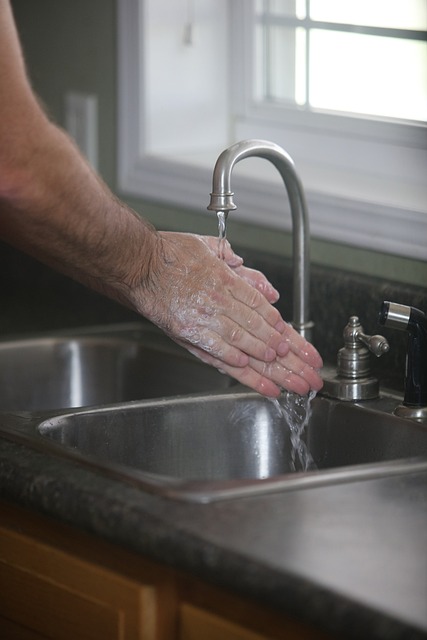Restorative sleep is essential for overall health in today's busy world. Prioritizing quality sleep through self-care routines like consistent bedtimes, bedtime rituals, optimized sleep environments, and mindfulness significantly impacts daily life. These practices ensure better rest and recovery for mind and body, making restorative sleep a key component of long-term well-being. Creating a supportive sleep environment with calming activities and limiting stimulants enhances sleep quality, contributing to robust self-care routines.
Restorative sleep is essential for overall well-being, enhancing recovery, and boosting productivity. In today’s fast-paced world, prioritizing quality rest often takes a back seat. This article guides you through understanding the significance of restorative sleep and offers practical tips to create an effective self-care routine. From establishing consistent habits to creating a soothing environment, discover techniques to transform your slumber. Learn how to enhance rest and recovery, ensuring you wake up refreshed and revitalized.
- Understanding the Importance of Restorative Sleep
- Establishing a Self-Care Routine for Better Sleep
- Techniques to Enhance Rest and Recovery
- Creating a Supportive Environment for Optimal Sleep
Understanding the Importance of Restorative Sleep

Restorative sleep goes beyond simply closing your eyes and drifting off. It’s a crucial aspect of overall well-being, integral to our physical and mental health. In today’s fast-paced world, where schedules are packed and stress levels are high, quality sleep is often overlooked as a luxury rather than a necessity. However, prioritizing restorative sleep practices is essential for maintaining optimal health. It allows your body to repair, rejuvenate, and consolidate memories, leaving you feeling refreshed and energized.
Incorporating self-care routines centered around sleep can profoundly impact your daily life. This might include setting consistent bedtimes, creating a calming bedtime ritual, optimizing your sleep environment, and practicing mindfulness or relaxation techniques before sleep. By making restorative sleep a non-negotiable part of your self-care routine, you’re investing in your long-term health, ensuring better rest and recovery for both mind and body.
Establishing a Self-Care Routine for Better Sleep

Establishing a consistent self-care routine is an integral part of achieving restorative sleep and overall well-being. By incorporating specific practices into your daily rituals, you can create an environment conducive to peaceful slumber and enhanced recovery. A simple yet effective strategy is dedicating time before bed to relax and unwind; this might include activities such as reading a book, practicing deep breathing exercises, or indulging in a soothing bath. These actions signal to your body and mind that it’s time to transition into a state of rest, reducing stress and anxiety levels.
Self-care routines offer a chance to nurture yourself, addressing physical and mental health needs. Regular exercise during the day, for instance, not only promotes overall fitness but also exhausts your body, making it easier to fall asleep at night. Additionally, maintaining a balanced diet and limiting caffeine intake can significantly improve sleep quality. By combining these practices with calming pre-sleep rituals, you’re taking a holistic approach to better rest, ensuring that both mind and body are prepared for a restorative night’s sleep.
Techniques to Enhance Rest and Recovery

Enhancing rest and recovery is an integral part of any robust self-care routine. One effective technique is practicing mindfulness before bed, such as meditation or deep breathing exercises, which help calm the mind and prepare the body for sleep. Reducing exposure to screens, especially blue light from electronic devices, can also significantly improve sleep quality. Instead, opt for relaxing activities like reading a book or listening to soothing music.
Additionally, creating a comfortable sleep environment is crucial. Maintaining a cool, dark, and quiet room can optimize conditions for restorative sleep. Incorporating natural elements like plants or using essential oils with calming scents can further enhance relaxation. Establishing a consistent sleep schedule and avoiding stimulants close to bedtime are other valuable practices that contribute to a healthier sleep routine.
Creating a Supportive Environment for Optimal Sleep

Creating a supportive environment is key to cultivating optimal sleep and effective self-care routines. Your bedroom should be your sanctuary, designed for relaxation and rest. Consider incorporating practices like dimming lights, keeping the room cool, and reducing noise to signal to your body that it’s time to wind down. A comfortable mattress and pillows can significantly enhance your sleep quality. Additionally, establishing a consistent bedtime routine can train your body to anticipate sleep, making it easier to fall asleep and enjoy deeper rest.
Enhance your space with calming elements such as plants or soft, natural fabrics. Avoid screens emitting blue light before bed, as they can disrupt melatonin production. Instead, opt for relaxing activities like reading, journaling, or practicing meditation or deep breathing exercises. Creating a tranquil environment through these self-care practices will not only improve the quality of your sleep but also contribute to your overall well-being.
Restorative sleep is not just a luxury, but a necessity for overall well-being. By implementing self-care routines and incorporating techniques that enhance rest and recovery, you can create an environment conducive to optimal sleep. From establishing a consistent sleep schedule to crafting a relaxing bedtime ritual, these practices empower individuals to take control of their sleep quality. Embrace these strategies as part of your self-care routine, allowing your body and mind to rejuvenate during each sleep cycle, ultimately leading to improved recovery and enhanced daily performance.
